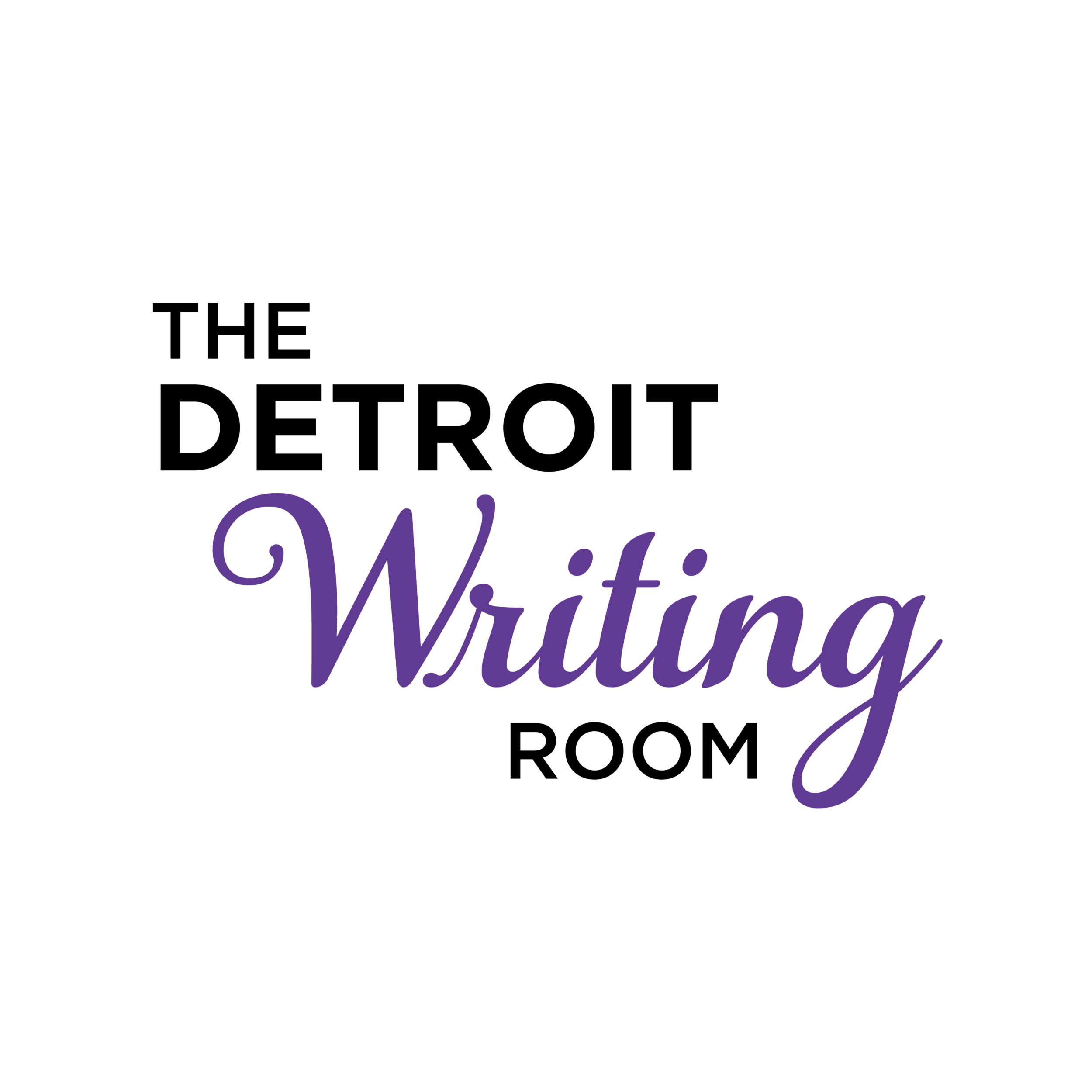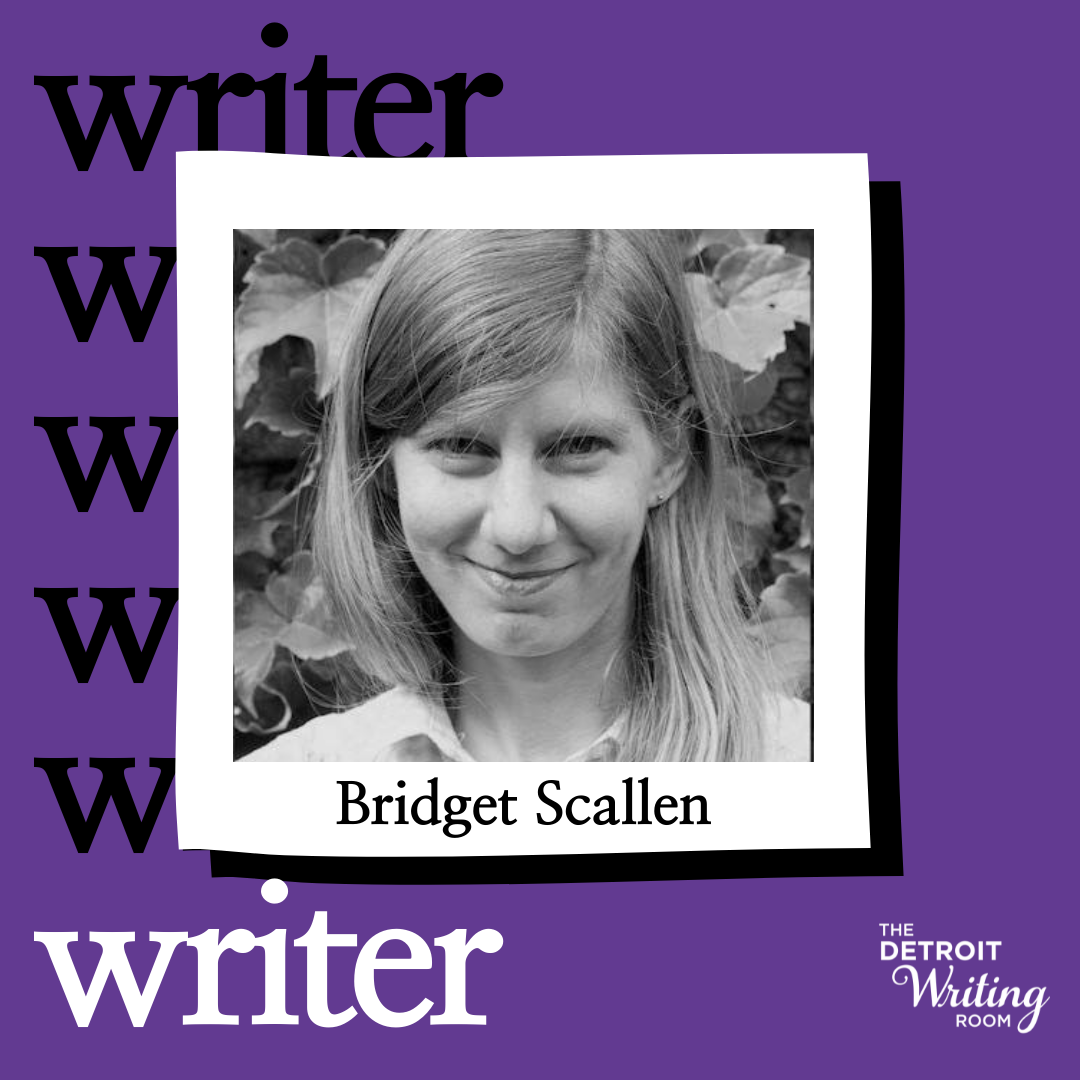Social Impact Communications Professional Bridget Scallen
This weeks Writer Wednesday features social science researcher and social impact communications professional Bridget Scallen from Grosse Pointe Park, Michigan! Bridget is the creator of the website Farmshare.nyc, which is the first website in NYC to centralize and map local community-supported agriculture groups in order to support small farms and consumers. She is also working on editing social media content for the Unbiased Science Podcast!
What is your favorite part of the writing process?
Empathizing, ideating and iterating the spatial arrangement of the written word on the page, be it a household sticky note or a company landing webpage, probably stimulates me to the greatest degree and in multiple dimensions. Writers used “design thinking” long before it became a buzzword.
Learning about the immediate “impact” of the written word or content design for the intended person or population tends to be the most informative, humbling and gratifying part of the writing process for me — even the more boxed, functional writing such as penning a postcard to a far-flung friend during this prolonged pandemic. Writing can truly be a gift. However this favorite part of learning the “impact” of one’s writing can also be the least favorite given our historic lows in empathy in the U.S.: one can write with the utmost precision only to have the writing and all that it conveys be casually disregarded, due to the readers’ general apathy of character, inattentiveness or ineptitude in reading. Write On, one may pun to self!
For longer-form, most parts of the writing process feel pretty masochistic to me although thankfully there is less anxiety outside of the over-contrived academic realm… phew, shocking.
What does your writing workspace look like?
I adore the spaciousness, natural sunlight and views of iconic downtown Detroit at The Detroit Writing Room! Wherever I am, it is kind of a primal need to have a window to the world, preferably one that can be cracked for ventilation, to allow some sense of the passing of the day and a hint of natural beauty beyond the built environment. Being deprived of a window can seriously disrupt the circadian rhythm for some of us; we are but animals. Given that people who write (a lot) or are generously labeled to be writers are stereotyped to be sensitive to their surroundings, I imagine I am far from alone in this necessity for natural light and time orientation. :)
If I am in a house or an apartment setting, which is less than preferable as I separate spheres when at all possible, I tend to find myself tucked low to the clean floor. While pets and toddlers like people closer to the floor, it can be initially an unintended surprise to adults in the U.S. because we tend to situate ourselves in chairs at desks or tables. I’ve not yet descended to writing in the bathtub or writing while driving like Ludwig Bemelmans, author of the Madeline children’s books.
My dream workspace would have a window seat or a meshy ergo Herman Miller with proud nod to our Michigan midcentury modernism legacy. A chatty Siamese rescue cat perched on the sill and the camaraderie of a challenging colleague or two would not be unwelcome!
What is your favorite non-writing hobby?
Bicycling and visiting the Detroit Institute of Arts! Bicycling as recreation and transportation allows me to efficiently get places and learn experientially about the urban social-ecological environment that I inhabit. Essentially, bicycling provides a planet-friendly empowering sense of agency and self-sufficiency that is deeply important to me as a woman. Not to neglect: the circular motion of pedaling is soothing and the functionality of bicycling as transit seems to exercise the brain in a healthy hunter-gatherer way.
I love visiting our DIA because one can walk through the doors and be suddenly surrounded by diverse beauty that has stood the test of time and survived many a travel and trial. Our spacious, many-corridorred Museum located in Detroit’s UpSouth gentility has been a refuge for me during the past year of the pandemic.
What is your favorite piece of writing advice?
Your lens, your ability to see and describe precision of detail and depth MATTERS. If I could give myself writing advice years ago, I would say, “Make a concerted effort to get someone luckier in life to spring for polarized prescription sunglasses as a birthday gift for you, so that you can navigate, perceive and write about the world beyond the computer screen in greater clarity! You and public safety deserve it.”
Okay, while often I ask for advice as a strategy to flatter — as I appreciate it here! — I will spill my secret that I don’t believe in advice except for one recent instance (thanks C!) and the Miss Manners columns that I have enjoyed following since a child. My experience is that advice typically is issued from a position of higher privilege, and in our vastly unequal and unjust American culture, that advising can often involve an arrogance and an ignorance of the everyday constraints that the advice recipient navigates and negotiates in unrecognized grace. There are so many versions of “mansplaining.” A fortune cookie may be more helpful in advice than an “expert” with the most esteemed qualifications, for the fortune cookie contains multitudes in mutual humility and is more likely to respect and stimulate the recipient’s imagination in mystery and abstraction. While the optimism of the outsider can indeed be useful, in general my intuition, disposition and lived experience leads me to trust that most people know themselves intimately, far better than I will ever know them, and most people know what is practical, cost-beneficial, optimal within their capacity, what works best for them in navigating any endeavor including writing.
Rather than advice, in terms of reflective insights, I think what can be constructive for writing is: care-givers and educators can cultivate critical thinking skills starting in early childhood; adults can continue to be curious, exploratory and empathetic in every area of our individual and collective lives to the degree we can do so safely; and from a relational, fluid approach, individuals, organizations, and institutions can offer encouragement and basic material resources to support shared dignity, the discovery process and all sorts of success. Long-live the long-passed WPA and FWP...
As well I would affirm the joy of revisiting cherished formative books and essays (I am rereading works by Zora Neale Hurston) and the value of drawing knowledge and inspiration from excellent works by people who have professions that are not “writer,” such as the new book by U.S. Surgeon General Vivek Murthy (“Together: The Healing Power of Connection in a Sometimes Lonely World”). Not least I applaud every person’s courage and craftsmanship in supporting the strength and sensitivity of the written word in any form, particularly when that written word is aligned with concrete action, often a formidable battle against the terrible casual disregard and distraction the written word endures!
What words I admire, relevant for writing as a creative endeavor, was the humble remark of the late and very great Charles McGee, paraphrased: that he enjoys learning something new each corner he turns while walking down the street, and that "Art that lives has to speak the language of the day or it's not worth its salt” (www.thedetroiter.com/nov04/mcgee.html).
What writing projects are you currently working on?
I am updating profiles of community-supported agriculture group movers and shakers in New York City, for the website farmshare.nyc I created several years ago that is the first website in New York City to really centralize and map local community-supported agriculture groups, in an effort to support both small farms and consumers’ affordable, flavorful and nutritious eating, in the context of corporate agricultural dominance, unacceptable levels of food insecurity and the growing climate crisis. “Stay hungry” as encouraged by those who do not face a single week of food insecurity, is not a nourishing mantra, and compels me to “write (and map) against culture” in the spirit of Lila Abu-Lughod.
I am also editing social media content of the Unbiased Science Podcast, as public health is a professional focus of mine, and I am creating content to promote Brigid’s Day (February 1). In Ireland the saint holds equal rank to Saint Patrick yet we neglect to celebrate her many “causes” including poets and scholars on this annual saint’s and goddess’s feast day.
And like so many in our country I’m working on a career pivot, toward User Experience Research, Design, and Writing, and therefore I am writing emails and thank-you notes in networking!
Follow Bridget on Twitter at @BridgetScallen.

